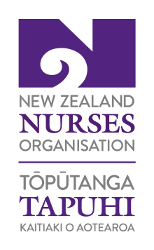 New Zealand Nurses Organisation media release, 18 May 2020
New Zealand Nurses Organisation media release, 18 May 2020
The New Zealand Nurses Organisation (NZNO) says it is pleased to see significant investment into health and disabilities in the 2020 Budget, but wants more detail about how that money will be targeted, lest important opportunities be missed.
NZNO Industrial Services Manager Glenda Alexander says it is really positive that the Budget acknowledges the crucial changes our health and social systems require.
“We welcome funding that targets the social determinants of health, including massive increases to state housing and insulation; lunches for 200,000 schoolchildren; and trades training, because good housing, nutrition and employment are central to good health.
“We also welcome $3.9 billion for district health boards announced earlier last week, but what we’d really like to see is some detail about how that extra money will flow into the Primary Health Care sector and towards Māori and Iwi providers. This is where the bottlenecks are.”
Ms Alexander said another issue not specifically addressed was staffing.
“How does the Government believe this extra health care it is funding will be delivered when the current health workforce is so understaffed? Additionally the urgent need for a skilled workforce in aged care has been starkly profiled by the COVID-19 crisis.
“So there’s a real opportunity here to look at re-training and support to meet this growing need, especially when we consider unemployment is likely to be around 10 percent or more.
“And if we’re speaking of opportunities, there is Budget funding ring-fenced for Māori and Pasifika communities ($485 million and $195 million respectively) that could and should be used to address equity issues.
“Finally, it is really disappointing to see that there is no progress to pay equity and living wage campaigns, both of which are central to work nurses, midwives, health care assistants and kai mahi hauora do.”
She said that, while it’s great that we now understand that money has to be spent, we do need to be reassured that money and resources are being targeted correctly to ensure the real problems we face are addressed at their real heart.
-Ends-
Media inquiries: Rob Zorn, NZNO Media and Communications Advisor: 027 431 2617.